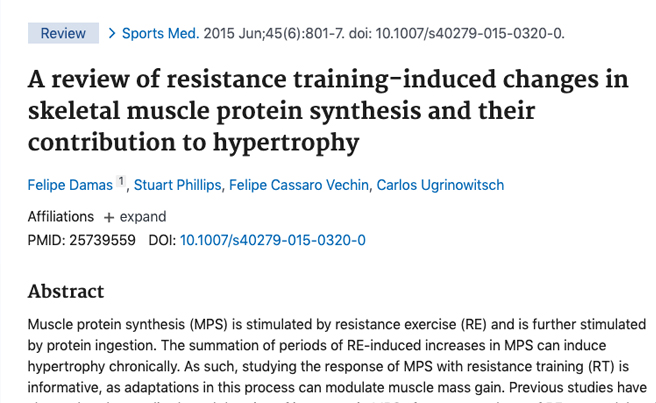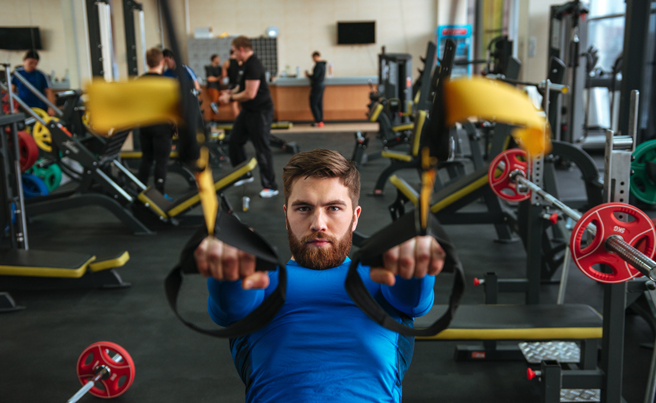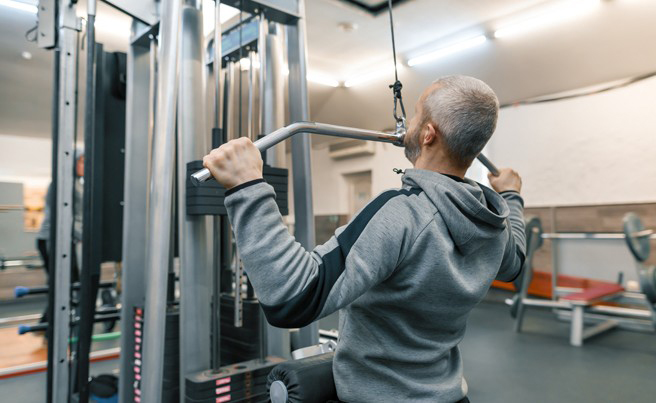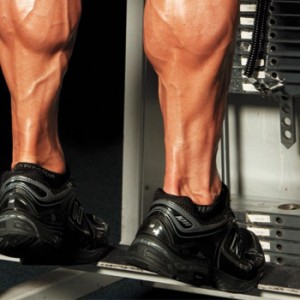Workouts
Useful articles

There’s a phenomenon in working out called newbie gains, and it’s surprisingly dangerous. Not for any physiological reason, though. It’s dangerous because it can be demoralizing. When you start strong, only to see the effect of your efforts drop precipitously, you start to wonder if something went wrong. Are you doing something wrong? Did you hurt yourself and not realize it? Either way, when you’re putting in the effort and no longer see results, it can be difficult to keep going. This is among the top reasons many people fail to keep up their workouts.
So, let’s dig into the problem and explore any possible solutions!
What Are Newbie Gains
First, we need to define the “newbie” gains. As the name implies, newbie gains happen when someone who has never really done strength training before starts hitting the gym in earnest. When you start working out and you’ve never worked out before, so long as your training hits a certain level of intensity, you’ll see a rapid increase in strength and muscle mass, almost disproportionate to the amount of effort you’re putting in.
This rapid strength increase makes a lot of people think “this is easy! Why doesn’t everyone do this?”
In addition to the muscle mass and strength gains you see when you first start, you’re also likely to lose fat along the way. Some people maintain their current body fat, while others lose. This isn’t likely to cause you to lose weight, since muscle growth is happening at the same time, but it still makes you look better faster.

Incidentally, this can happen to people who are no strangers to the gym, but who have never spent time with dedicated, serious weight lifting. Compound exercises, progressive overload, and high weight, low rep exercises can trigger newbie gains in people who frequent the gym with other sorts of workouts.
If you break it down, you can think of this in the same terms as any kind of stimulus you impose on your body.
Draw up a hot bath. When you first stick a foot in it, it feels almost scalding, it’s so hot. Give it a few minutes, though, and your body becomes used to it. The heat no longer feels painful, but rather it’s soothing, penetrating deep and relaxing tight muscles.
The initial heat is a hyper response from your body. It’s feeling something dramatically hotter than your local body temperature and your brain responds accordingly. It’s a safety mechanism in a way; the abrupt heat response tells you to back off just in case it’s dangerously hot.
In weightlifting, your body’s hyper response is to the stimulus of tearing and damaging muscle fibers. Your body responds to this damage by spiking protein synthesis rates, meaning your body grows a significant amount of muscle in response to this stimulus. You haven’t put your body through this before, and it responds in excess to make sure that if you try again, it’s ready.

As you continue working out, a couple of things happen:
- First, the length of time protein synthesis remains elevated drops. When you first start working out, protein synthesis remains elevated for 3-4 days after a workout. Once you’ve been working out for a while, your body is more used to it, so protein synthesis only remains elevated for 1-2 days. You can see a study on this effect here.
- Secondly, you start to reach a point where it’s harder to push all of your muscles at once. Fast-twitch muscle fibers are easy to work out, but slow-twitch muscles are much more difficult and require slow, grueling exercises. If you’re not working out properly, you’re not activating all of your muscle fibers. Since you’re new to the gym at this point, chances are pretty good that you haven’t established this kind of proper form yet, so you’re no longer pushing all of your muscles to the brink.
As you progress, you also run into limits on how much you can do safely. You run the risk of burnout or injury if you push yourself too hard and too fast, and that means you will pull back more, leading to slower gains.
How Long Do Newbie Gains Last?
Newbie gains end. Different trainers have different estimates for how long they last, but in large, part this is a difference in definition more than anything.
The truth is, every single person is different. Your body reacts differently to stimulus than your trainer’ body, your neighbor’s body, or your dad’s body, for example. Some people see rapid gains, much more than other people, but taper off quickly. Other people see slow and steady progress for 2-3 years before they reach a plateau. Still, others see muscle density gains, but not size, and attribute it to some sort of genetic failure.

Newbie gains depend on several things.
- The intensity of your training. Even moderate training can induce significant gains right away, but they will taper off in a matter of a few months, earlier than the usual newbie gains phase. That said, this kind of training can be increased in intensity to induce a second “phase” of newbie gains.
- The duration of your training. Some people see gains, but burn out or have their habit broken, so they stop training. Newbie gains only last for a few days after you stop training entirely, so you have to keep up with training to keep up with the gains.
- Your genetic potential. Most people can only support around 30-50 “extra” pounds of muscle mass before gains taper off or stop almost entirely. Strength trainers and bodybuilders go through insane training routines to keep growth going long past where normal training and evolutionary potential would put an end to it.
In general, the larger and stronger you get, the harder it becomes to get even larger and even stronger.
Newbie gains, according to most definitions, last about the first year of training. Some people measure this based on muscle mass growth month over month. Some people choose to measure strength growth instead.
The tricky part is, there’s no one definition for newbies gains, and worse, there’s no hard cutoff point. Newbie gains are just gains when you’re starting out. They start to decline immediately, and they taper off over a long, slow course. You’ll gain the most muscle in your first year of training, and gain approximately 50% of that amount of muscle over the second year, and so on. Where, on this curve, do you cut it off?
There’s also the decreasing return on mass. When you gain your first ten pounds of muscle, you get immense strength benefits out of it. Add on another ten, and you aren’t adding on the same amount of additional strength and capacity. It’s not a simple additive formula. Muscle mass has diminishing returns.
Can You Miss Out on Newbie Gains?
One point of concern for people who are getting older – into their 30s and 40s, or older – is that they may have spent a while poorly training and “missed out” on their newbie gains. This fantastic growth potential was squandered, they think, and it will make further training even harder.
There’s a bit of truth to this, but it’s not as devastating as you might think. Like with many things in like, the earlier you start it, the more capacity for growth and learning you have. It’s easier to learn a language as a kid than an adult. It’s easier to pick up a new skill. It’s easier to build muscle.
That doesn’t mean you can’t teach an old dog new tricks. It’s entirely possible to build muscle when you’re 40 or 50, it just might not be as fast or as easy as it would have been if you had tried to do it a decade or two earlier.

As you age, you also have to contend with the way the human body starts to break down. It’s a lot easier to injure yourself, and it’s harder to push yourself beyond your limits to achieve those gains. That means you can’t train as intensely or as deeply as you could when you were younger, so your gains will be slower.
What to Do When Newbie Gains Stall Out
When your newbie gains are tapering off or stalling out, you start to run into problems. A lot of problems.
It gets harder and harder to find the motivation to train. Training is hard, and when you’re first starting out, seeing those gains can help keep you going. When those gains taper off, the hard work seems less worthwhile, and it’s more and more difficult to find the motivation to keep going. This is where a lot of people – and we mean a lot of people – drop off their training programs.
It gets easier to hurt yourself. Many people find that the solution to tapering gains is to push themselves harder, and this works… for a while. Eventually, though, you run into physiological limitations, and pushing yourself harder only runs you into overtraining and injury. If you hurt yourself training, you’re going to do a lot of lasting damage if you’re not careful with your recovery.

Many people end up falling off the wagon here and never getting back on.
Illicit substances get more tempting. So, there’s a biological limit to how much muscle mass you can reasonably gain through working out. And yet, there are hundreds of examples of bodybuilders and workout freaks who keep packing on the pounds year over year. What’s their secret? To be honest, it’s probably steroids.
When your gains taper off, it’s very tempting to turn to substances to keep them going. These substances are at best disqualifying from competitions and programs, but far more often they lead to health problems a few years down the line if you’re not careful. What good does it do to build up a fit and strong body if you can’t enjoy it?
When you notice your initial gains are tapering off, you can take some actions to try to right the course.
Shift your perspective. The fact is, there’s no way short of illegal drugs to stimulate your muscles to grow as fast as they did when you first started training in earnest. Making it past this mental plateau is a matter of changing your perspective. Don’t look for additional pounds of muscle; measure it in grams. Don’t worry about increasing your strength by whole plates; increase it a pound at a time. Treat it as you would a plateau.
Remember: any progress is good progress. Just because it’s not as fast as it was before doesn’t mean it’s not valuable. Too many people have a mindset where they need to be the best at what they’re doing, all the time, no matter what it is or how long they’ve been doing it. It can be difficult to confront the idea that your best gains are behind you, but there’s always – always – more progress ahead of you.
Establish a goal. A lot of people go into weightlifting with the nebulous goal of “getting fit.” This is fine when you’re starting out, but then what? When you meet a basic definition of fit, where do you go?
It’s okay to maintain. Once you’re fit, you can keep up working out just to maintain a fit body and enjoy an active lifestyle. There’s absolutely nothing wrong with that, and if that’s your goal, good for you.
Otherwise, if you want to keep going and keep pushing yourself, set a goal. This could be a goal of a target muscle mass to reach, or a target physique you want to have. It could be a tangible goal of an amount of weight to lift. It could be a competitive goal, like attending or winning a competition or performing in a sport.
At this point, you can adjust your training from strength training into a training regimen aimed at your chosen goal. It might be more dedicated strength training, or it might transition into a sport or activity training instead. This can give you a whole new world to explore.
Remember: any progress is good progress. Even if you’re only gaining a few pounds of muscle a year, it’s still progress. Never discount progress.
Thank! Your message has been sent successfully.











Questions and answers 0